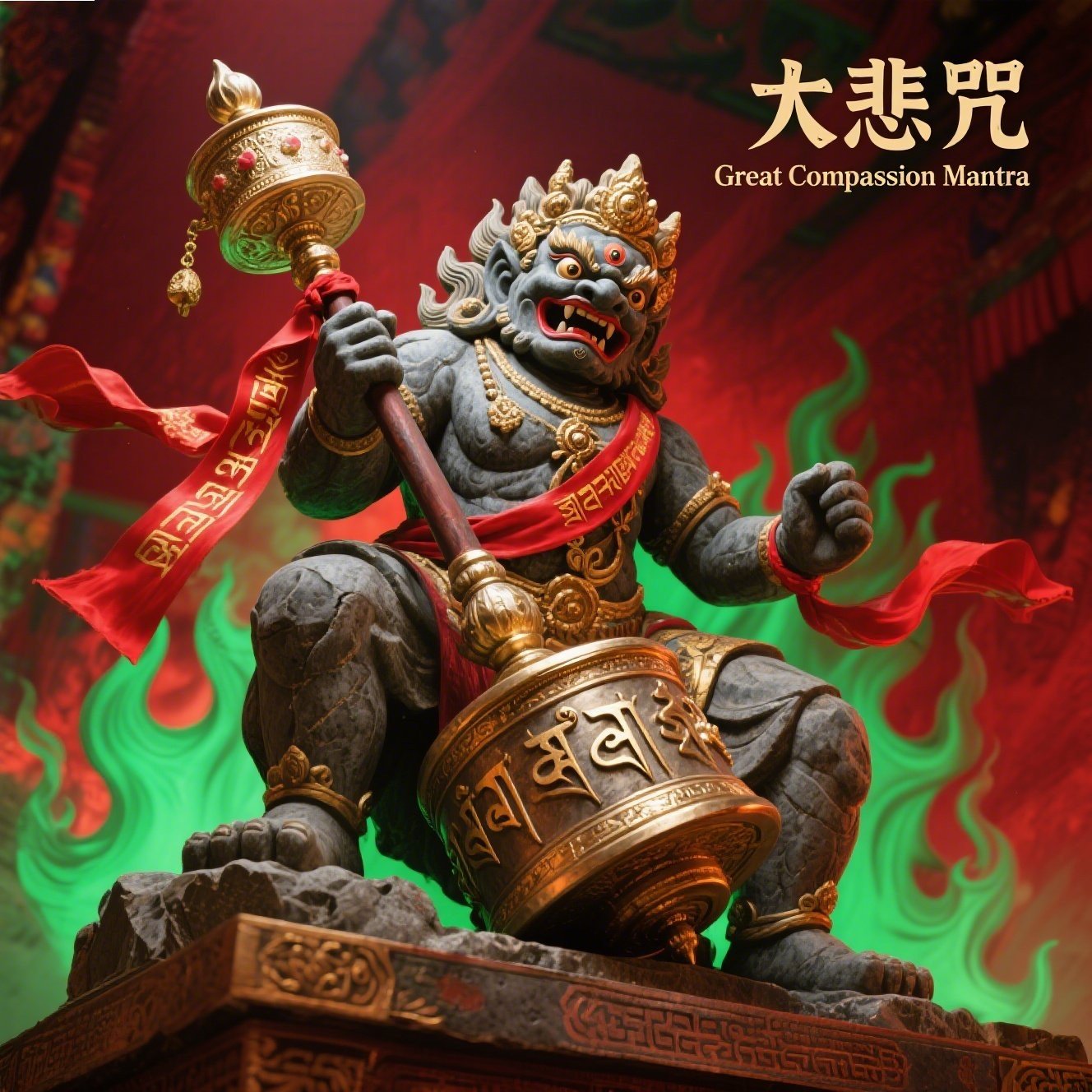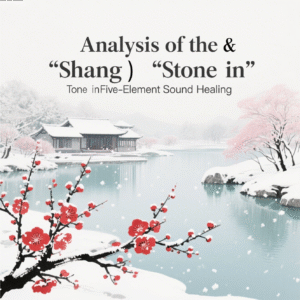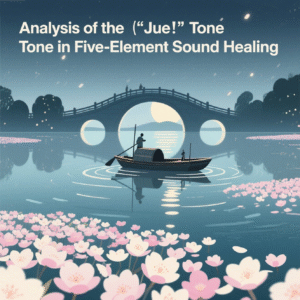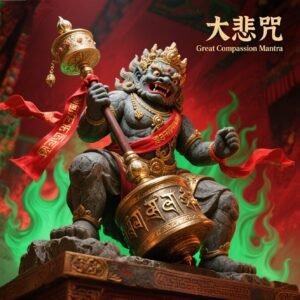#### **Benefits of Chanting “Great Compassion Mantra” (Da Bei Zhou)**
- **Physical Benefits**
– **Muscle Relaxation**: Slow rhythms reduce cortisol, easing neck/shoulder tension.
– **Breath Regulation**: Long syllables naturally guide diaphragmatic breathing.
- **Mental Benefits**
– **Emotional Calm**: Repetitive chanting quiets overthinking, aiding anxiety/depression.
– **Compassion Cultivation**: Lyrics reflect Bodhisattva’s vows, fostering empathy.
- **Spiritual Benefits**
– **Energy Cleansing**: Believed to dissolve negative karma in Buddhist practice.
– **Mindfulness Training**: Enhances focus and self-awareness through mantra immersion.
—
#### **Additional Benefits**
– **Cultural Insight**: Connects with East Asian Buddhist philosophy and art.
– **Group Harmony**: Group chanting amplifies collective positive energy.
—
#### **Optimal Usage & Synergy**
- **Scenarios**
– Morning purification, pre-sleep relaxation, post-emotional stress.
– Background for meditation/yoga to deepen focus.
- **Enhancements**
– **Breath Sync**: Inhale deeply at the end of each mantra phrase.
– **Ambiance**: Use sandalwood incense or amethyst crystals.
—
#### **Cautions**
- **Energy Sensitivity**:
– Beginners may experience dizziness (energy adjustment); shorten sessions and hydrate.
- **Non-Religious Use**:
– Secular listeners can treat it as a mindfulness tool without doctrinal focus.
- **Practical Tips**:
– 15-30 mins/day, 40-50 dB volume. Avoid late-night use if prone to vivid dreams.
—
### **Summary**
The *Great Compassion Mantra* merges **spiritual practice** with **sound therapy**, offering both calming and transformative effects. Pair with breathwork for grounding, and adjust usage based on your body’s responses. Non-Buddhists can use it purely as a focus tool.





